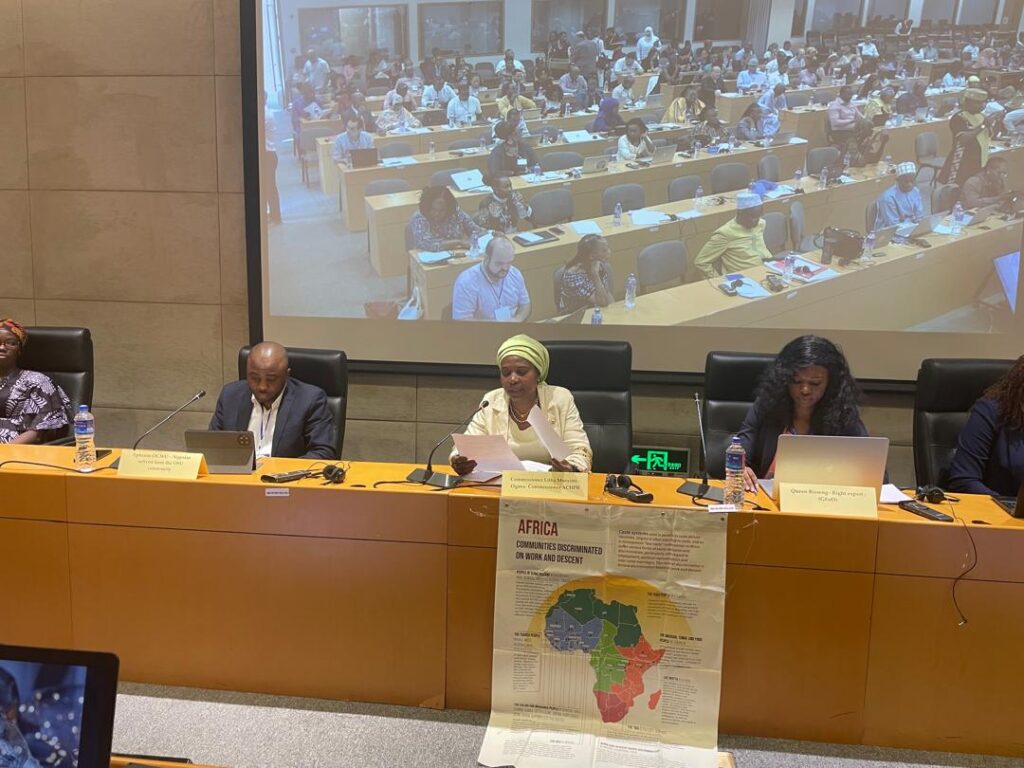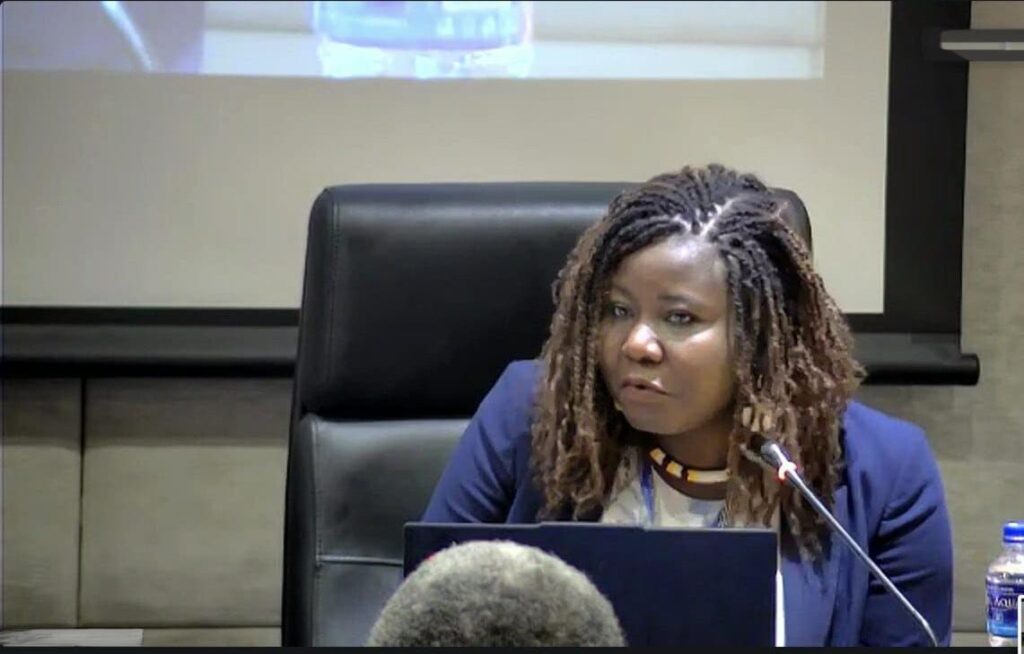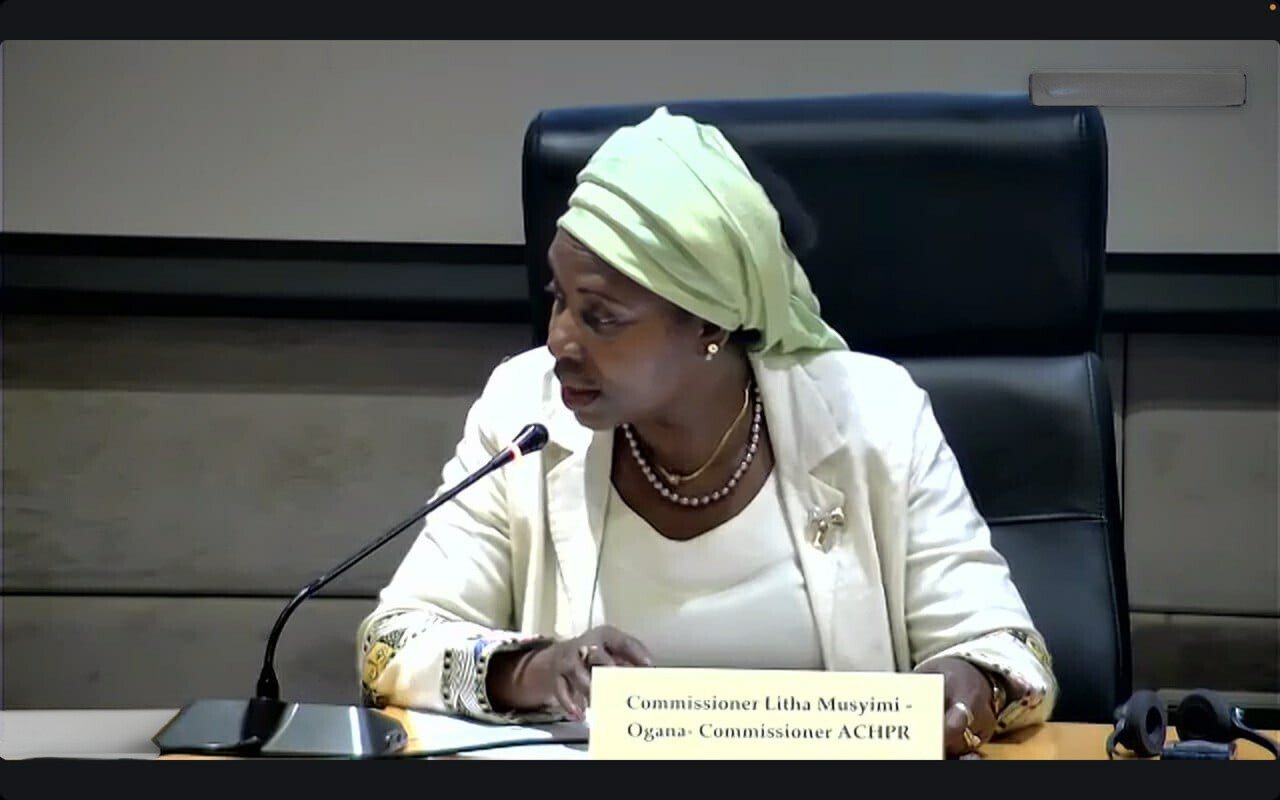Special Interest Group demands adoption of resolution on CDWD in Africa
The panel was chaired by Litha Musyimi, Commissioner of African Commission on Human and Peoples' Rights (ACHPR) during the NGO Forum ahead of 81st Session of the ACHPR on October 15, 2024
The NGO Forum ahead of 81st Session of African Commission on Human and Peoples' Rights (ACHPR), held from October 13 to 15, 2024, saw significant discussions on the challenges faced by communities discriminated against based on employment and descent. The NGO Forum brought together a thematic group(towards making a working group) comprising key human rights defenders from across the continent, including participants from Mali, Burkina Faso, Cameroon, Gambia, Nigeria, and North Africa. Their collective focus was on addressing entrenched discrimination based on work and descent and marginalization affecting millions in Africa.

One of the central topics of the thematic interest group's discussion was the role of education in transforming the lives of those subjected to descent based discrimination. Education, as emphasized by multiple participants, is not only a fundamental human right but also a tool of empowerment. Through education, individuals become aware of their rights, which is the first step in recognizing and rejecting discriminatory practices that have been imposed upon them for generations.
The group underscored that education can help awaken communities to the injustices they face, encouraging them to challenge the status quo and seek better opportunities.
The conversation moved beyond basic awareness, delving into the transformative power of education in promoting human rights. Educated individuals are more likely to claim their rights in judicial settings, break free from societal stereotypes, and demand the dignity they deserve. Education also has an intergenerational impact.
For those discriminated against by descent, often trapped in cycles of poverty and exclusion, education offers a pathway to liberation. Empowered individuals can then contribute to building a society that respects human rights and challenges discriminatory norms.

The thematic interest group further explored the direct impact of employment- and descent-based discrimination on communities. The perpetuation of negative stereotypes, often exacerbated during times of crisis, leads to increased violence, exclusion, and marginalization.
Many participants pointed out how these issues fuel a relentless cycle of poverty, where those affected lack access to decent work or the necessary resources to break free from their disadvantaged position. This systemic exclusion, the group agreed, has far-reaching implications not only for the affected communities but for entire regions that remain trapped in inequality and underdevelopment.
To address these complex challenges, the thematic interest group proposed a series of concrete measures aimed at protecting survivors and ensuring their rights are upheld. One of the key recommendations was the recognition and protection of victims through mechanisms at the national, regional, and international levels.
Strengthening legal frameworks was also seen as crucial, especially in cases where multinational corporations, such as mining companies, expropriate land and resources, further marginalizing vulnerable communities. Advocacy for the enforcement of existing laws and reparation mechanisms was strongly supported, along with the implementation of empowerment programs designed to raise awareness both among victims and perpetrators of human rights violations.
A particularly significant proposal was the establishment of free legal assistance services for victims. Legal barriers often prevent those discriminated against from seeking justice, as they lack the resources to navigate complex legal systems. The provision of free legal aid would allow these individuals to claim their rights and challenge discriminatory practices more effectively.
The thematic interest group, comprising of Benzahinibe Micheline Somda from Mali, Queen Bisseng from Cameroon, Binta Sidibe from Burkina Faso, Ali Camara from Gambia, Halimatou Caeesay from Gambia, Ephraim Ogwu from Nigeria, Belkacem Lounes from North Africa discussed how to strengthen continental partnerships to tackle these issues. Participants emphasized the importance of inter-African cooperation, suggesting that joint projects be created and implemented by African organizations working on similar issues. Drawing inspiration from best practices in other regions, especially in terms of legal frameworks and victim support systems, was highlighted as an essential step towards building stronger, more effective collaborations across the continent.
The NGO Forum of African Commission on Human and Peoples' Rights was called upon to play a pivotal role in addressing these challenges. The thematic interest group urged the NGO Forum at ACHPR to pressure African states into adopting resolutions that would ensure the effective implementation of laws protecting discriminated communities. Recognizing the rights of communities facing discrimination, particularly those discriminated against based on employment and descent, was seen as a crucial step toward achieving equality. The group also advocated for the universal recognition of the African Court on Human and Peoples' Rights' jurisdiction by all African states, ensuring that victims of human rights violations have access to justice at the continental level.
Another critical recommendation was the need for national human rights institutions to be genuinely independent, free from political influence. This would allow them to act as impartial advocates for those discriminated against, ensuring that their rights are protected and that perpetrators are held accountable. Additionally, the protection of human rights defenders, who are often at the forefront of the struggle against discrimination, was deemed essential to maintaining progress in the fight for equality.
As a final recommendation, the thematic interest group proposed that the NGO Forum of ACHPR invite African states to formally acknowledge the existence of discrimination based on employment and descent as a distinct and urgent issue. A resolution was called for, one that would specifically protect and promote the rights of individuals facing such discrimination. The thematic interest group also recommended that the Commission initiate a continent-wide study on the human rights situation of these communities, with the findings to be shared with relevant African Union bodies. This would provide a comprehensive understanding of the scope of the issue and inform targeted interventions aimed at eliminating discrimination and fostering inclusivity.
The extension of the mandate of the Working Group on Indigenous Populations and Minorities to include those discriminated against by employment and descent was also recommended. This expanded mandate would enable a more in-depth exploration of the unique challenges faced by these communities, while also ensuring their inclusion in the broader framework of minority protection under the African Charter.
The report and recommendations presented by the thematic interest group at the NGO Forum represent a significant step forward in addressing one of Africa's most pressing human rights challenges. Through education, legal reform, empowerment programs, and stronger continental partnerships, the group highlighted a clear path toward achieving equality for all, regardless of employment or descent. The onus now lies on the African Commission and its member states to act upon these recommendations and bring about meaningful change.
Also Read: New Jersey declares September 21 as Global Caste Awareness Day


